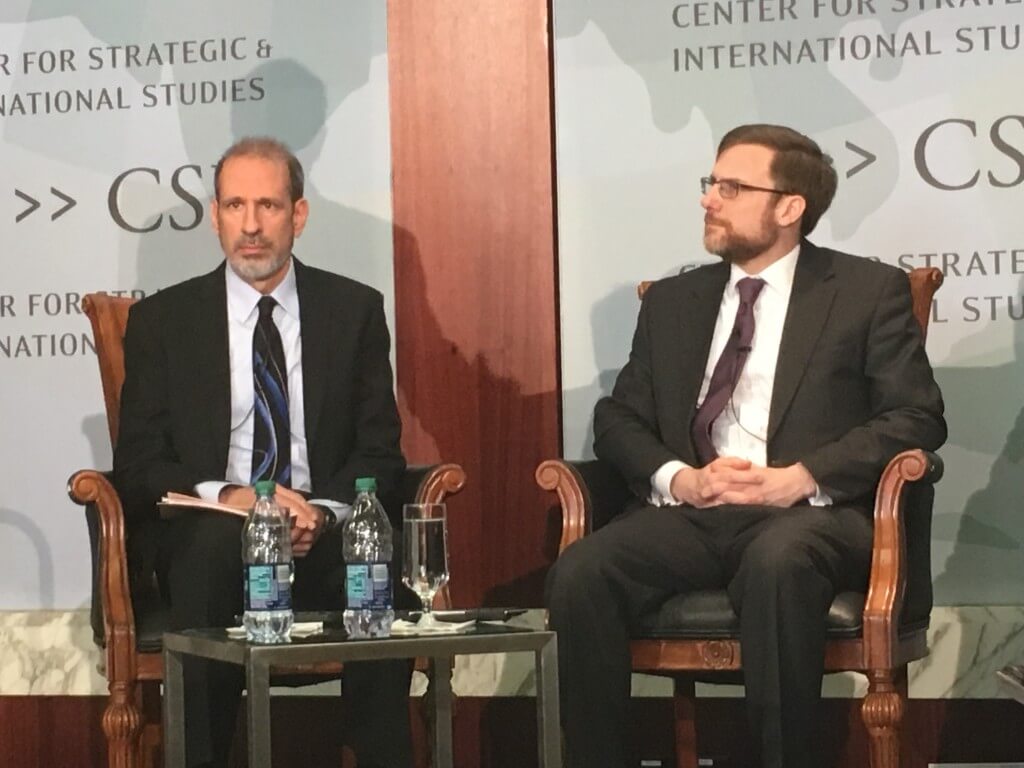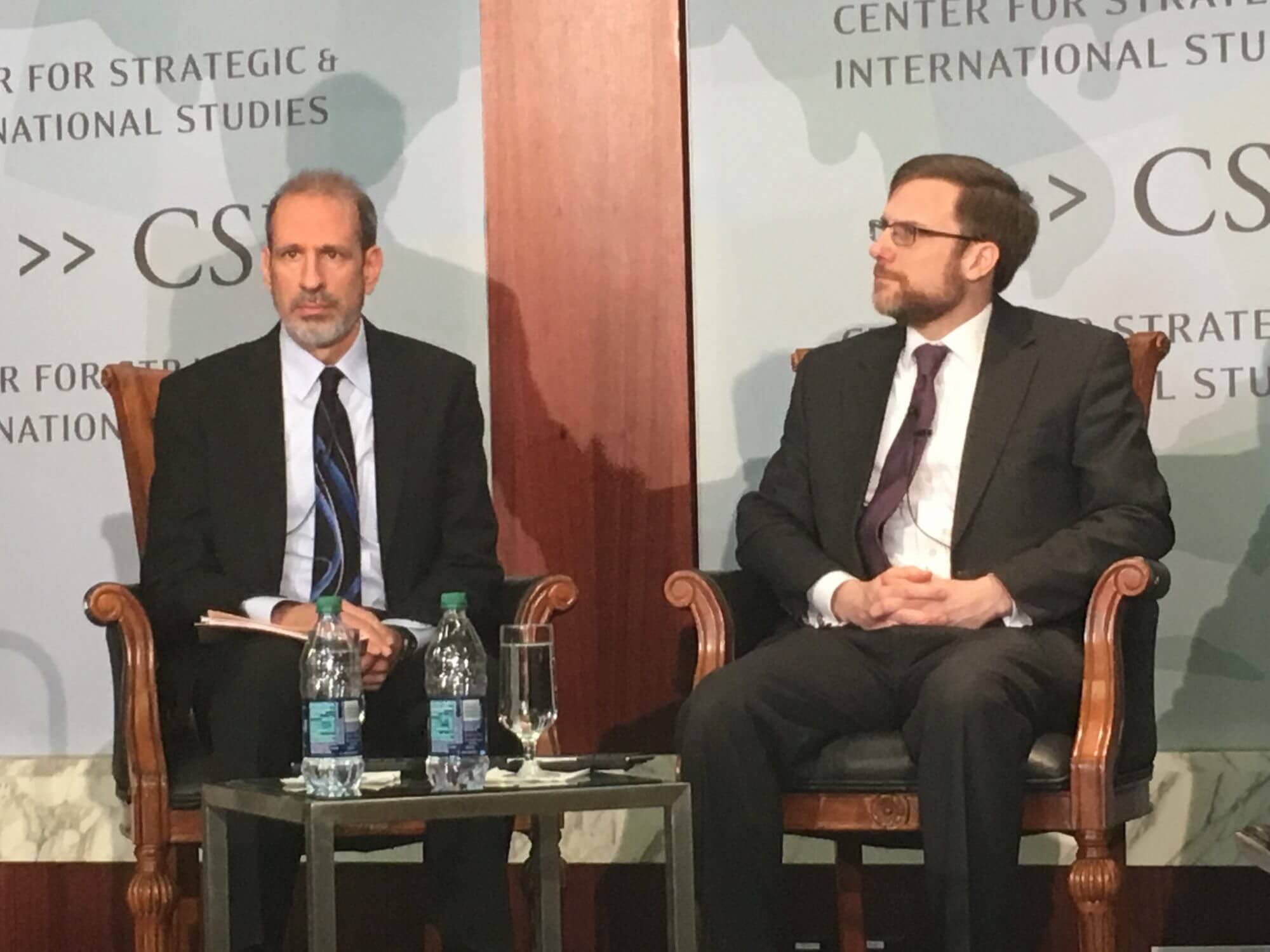
Defense Department officials Mike McCord, left, and Jamie Morin, right, discuss the strategic thinking behind the development of the 2017 defense budget proposal at the Center for Strategic and International Studies Monday.
WASHINGTON — The Pentagon will use its substantial budget next year to modernize weapons systems, support allies abroad and cope with emerging challenges across the globe, Defense Department officials said Monday.
Robert Scher, assistant secretary of defense for strategy, plans and capabilities, said that the agency’s “five evolving challenges” are counterterrorism and four troublesome countries — Russia, China, North Korea and Iran.
The Defense Department has proposed a budget of $583 billion for 2017, including increases in programs such as the European Reassurance Initiative. The reassurance initiative aims to show U.S. support for European allies in the face of potential Russian aggression in the region, such as its takeover of of Crimea from Ukraine in 2014.
“When Secretary (Ash) Carter got here, it was very clear that he assessed there was a new security environment,” Scher said. “The strategic imperative is to deter, and if not deter, win the nation’s wars.”
The U.S. can upgrade its projection of global power through several programs, said Jamie Morin, director of cost assessment and program evaluation at the Defense Department.
The department has proposed investing more than $40 billion in undersea capabilities as one domain where U.S. forces are already the dominant power, Morin said.
“Adversaries and potential adversaries need to understand…the capabilities the U.S. can bring to bear if we need to defend allies and American interests,” he said. “That’s at the heart of global deterrence.”


